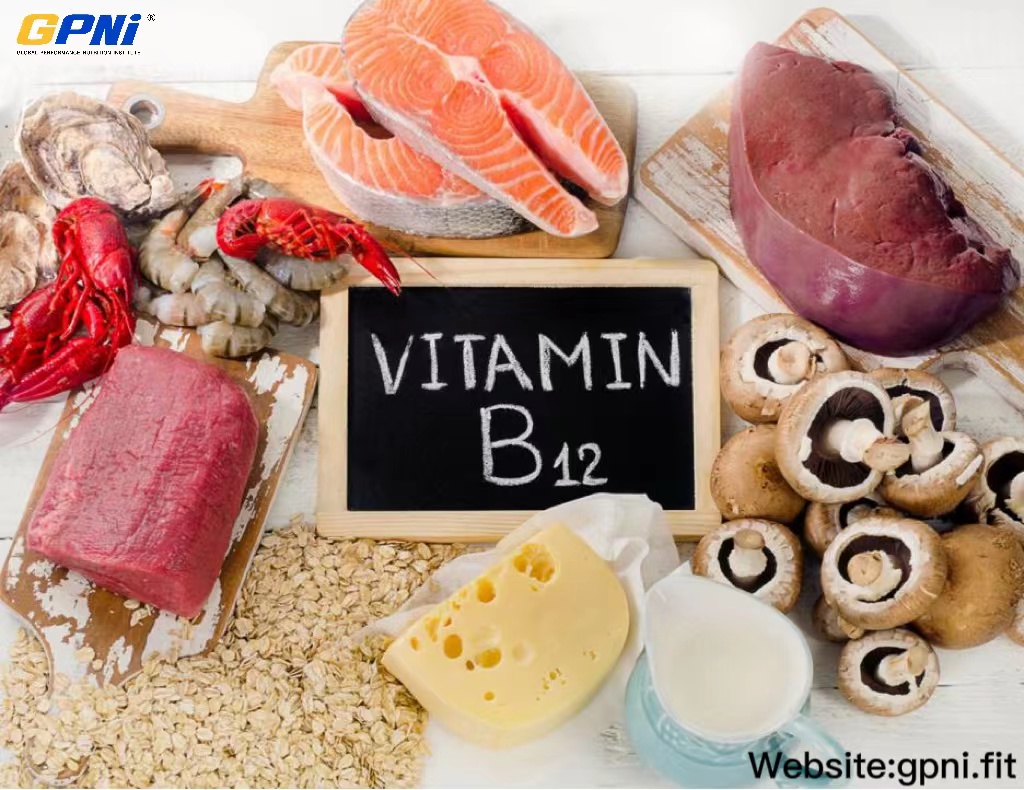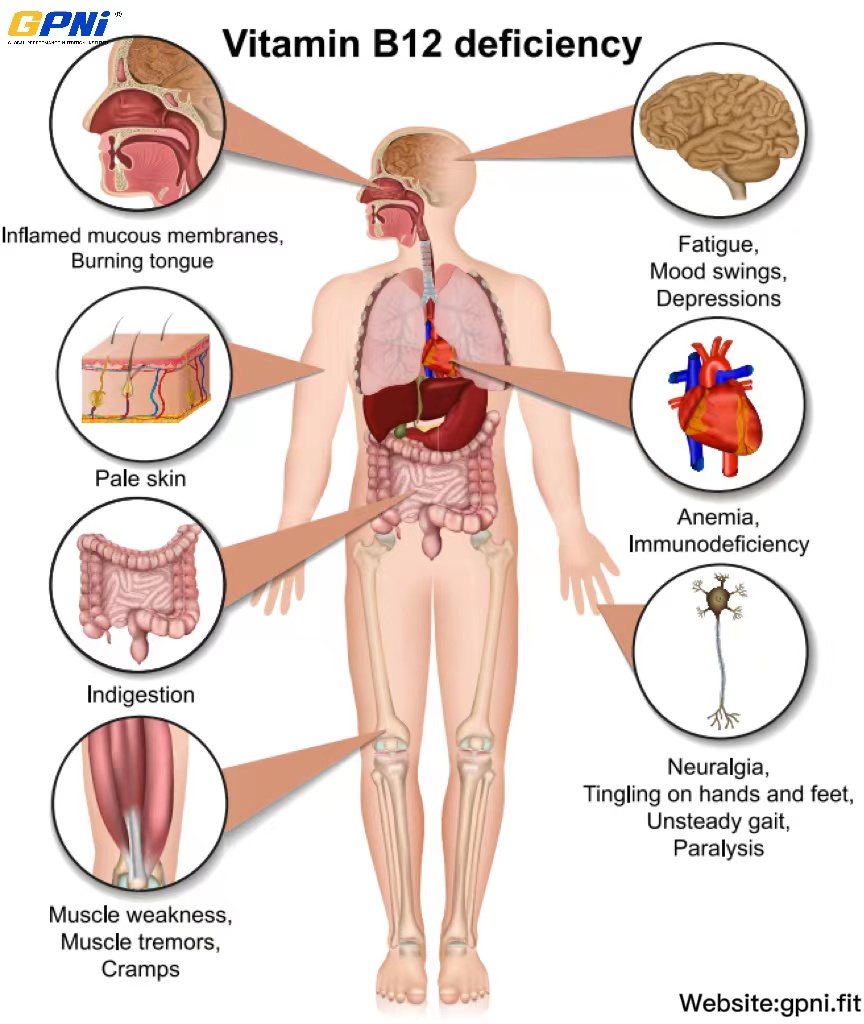Vitamin B12, also known as cobalamin, has many functions in the body. This micronutrient is often thought of as the micronutrient that helps give you energy. Vitamin B12 serves many functions in the body. It is necessary for red blood cell production, cell metabolism, DNA formation, and nerve function. B12 also helps the body metabolize fat, protein, and carbohydrates, and is, therefore, necessary for digestion and absorption.
The body cannot produce B12, therefore it is considered an essential nutrient and must be obtained from the diet or supplementation. Although the body can store B12 in the liver, it is still important to ensure vitamin B12 intake is adequate to reduce the risk of deficiency.

B12 is a water-soluble vitamin found naturally in many different foods. This vitamin is mainly found in foods from animals, including but not limited to fish, meat, poultry, eggs, and dairy. Some of the richest sources of B12 are liver, sardines, and clams. Many food companies fortify or add B12 during processing such as breakfast cereals. B12 occurs in some plant foods such as mushrooms and algae, but it is not nearly as bioavailable as the B12 found in animal foods. This means that your body has a harder time digesting and absorbing the B12 found in plants. Because of this, many people following a plant-based or vegan diet must take a supplement to meet their B12 requirements, as they are not getting enough of the vitamin from food. This is especially true for vegan athletes since their diet contains no sources of B-12 by default, consuming fortified foods, supplementing, and taking injections are essential. The recommended daily intake of vitamin B12 is 2.4 micrograms (mcg) per day.
Most people get plenty of B12 per day if they eat a balanced diet, especially if their diet contains animal products. For example, a 3-oz portion of lean steak (about the size of a deck of cards) contains almost 7 micrograms of B12.
Since vitamin B12 is needed for so many functions in the body, not having enough can cause a number of health issues. B12 deficiency may lead to anemia, which causes a malfunction in the nervous system over time. There are many signs that may indicate B12 deficiency, and they tend to develop slowly and gradually worsen over time. Early symptoms include fatigue, a low appetite which may lead to weight loss, having a sore mouth or tongue, nausea, vomiting, and the onset of depressive symptoms. Later signs of B12 deficiency include vision problems, difficulty speaking, and numbness in hands and feet. Athletes with poor or marginal nutritional status for vitamin B12 may have decreased ability to perform high-intensity exercise.

Since B12 is essential for many different bodily processes, many people think that consuming or taking extra B12 can help increase energy. This theory may be due in part to the fact that B12 plays a role in the body’s energy production, mainly through DNA formation. However, there is currently no strong scientific evidence supporting this theory in people who have sufficient levels of vitamins. In other words, if you are not suffering from a deficiency, supplementation is not needed. Many food products advertise themselves as being high in B12 (think energy drinks like Monster, Celsius, 5-Hour Energy, and Bang) as a marketing technique. The best way to boost energy naturally is by eating a variety of B12-rich foods such as meats, dairy, and fortified grains.

Cassie Evans is a registered dietitian and a published researcher. She has studied sports nutrition and completed an internship with the University of Miami Sports Nutrition Team and Nova Southeastern University’s sports performance team. She holds a Bachelor of Science in Exercise and Sports Science and received her CISSN in 2018. She is currently pursuing her doctorate in Human and Sports Performance from the Rocky Mountain University of Health Professions.
References:
- Krzywański J, Mikulski T, Pokrywka A, et al. Vitamin B12Status and Optimal Range for Hemoglobin Formation in Elite Athletes. Nutrients. 2020;12(4):1038. Published 2020 Apr 9. doi:10.3390/nu12041038
- Beck W.S. Cobalamin (Vitamin B12) In: Rucker R.B., Suttie J.W., McCormick D.B., Machlin L.J., editors. Handbook of Vitamins.3rd ed. Marcel Dekker Inc.; New York, NY, USA: 2001. pp. 466–476.







